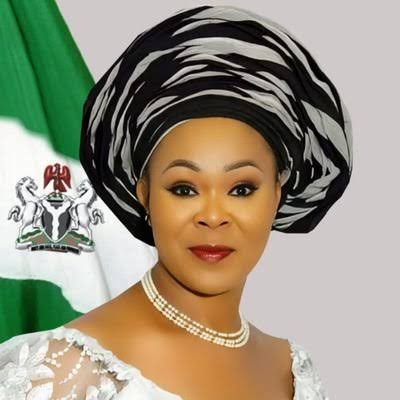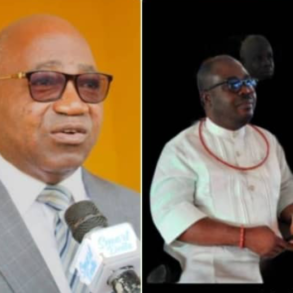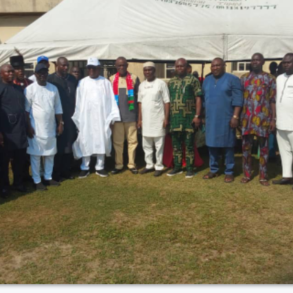By Oghenekaro Awodeha
On October 23, 2024, news of Mrs. Uju Kennedy Ohanenye’s dismissal as the Minister of Women Affairs and Social Development captured my attention, as well as that of many Nigerians.
I must admit, though, I saw it coming. In fact, I would have begun to believe in the Tinubu administration’s “Renewed Hope” agenda if she had been retained, not just as a minister, but in the same role. The reason is straightforward: she was the only minister who genuinely believed in and advocated for hope. Unfortunately, it seems she failed to realize that “renewed hope” was meant to be a slogan, not an agenda, and treating it as such was a sin. A misstep that ultimately led to her dismissal.
Many, like myself, saw her dismissal as more than a routine cabinet reshuffle. While other ministers had been dismissed for clear reasons, Mrs. Ohanenye’s removal felt distinctly different, more like a case of victimization rather than justified reform. Her outspoken efforts to expose corruption and misuse of public funds had set her apart, and her dismissal served as a stark reminder of the risks faced by those who challenge established norms within Nigeria’s public sector.
From the outset, Mrs. Ohanenye encountered significant challenges in her mission to clean up practices within the Ministry of Women Affairs. Her exposure of unchecked spending practices laid bare the troubling reality that public resources intended to benefit women and children were often misdirected. “I met a place where they spend over N250 million just for a meeting when women are suffering,” she disclosed. This pattern of excessive spending reflected a Ministry plagued by inefficiencies.
This resistance to accountability extended to an investigation by the House of Representatives Committee on Women Affairs over a missing N1.5 billion supposedly allocated for contractor payments. When Mrs. Ohanenye was questioned, she revealed that only 30 percent of the funds had actually been received by her office. Moreover, she claimed that external pressures prevented her from fully accounting for the expenditure, stating that “the First Lady, Remi Tinubu, had told her to mind her business” when she inquired about the untraceable funds. This was not simply an isolated incident but a microcosm of a system that penalizes those who insist on doing things by the book.
It’s a familiar scenario in Nigeria, where citizens are often punished for doing the right thing. As Mrs. Ohanenye’s case demonstrates, those in power often expect compliance rather than accountability. It’s akin to the experience of a Nigerian driver stopped by a police officer asking, “Anything for the boys?” In that moment, producing one’s valid vehicle documents, the correct response, often leads to frustration or delay, as the officer is expecting something else entirely. Similarly, Mrs. Ohanenye’s efforts to bring transparency into her Ministry were not only ignored but punished, revealing a culture where genuine accountability is often sidelined by entrenched interests.
Despite these obstacles, Mrs. Ohanenye stayed committed to her reform agenda. She envisioned meaningful projects, such as mobile courts, to hold families accountable for child hawking while simultaneously empowering the mothers involved. “By the time I arrest hawkers, small children that are hawking, their mothers will come and I will reprimand them and at the same time empower them,” she explained. Her approach combined both accountability and economic support, directly addressing the poverty that drives families to desperate measures.
Her reform agenda, however, put her in direct conflict with some of the world’s most powerful financial institutions. Mrs. Ohanenye notably rejected a $500 million loan from the World Bank and the United States, questioning its potential impact. “If I don’t sign the $500 million, will I keep quiet and women continue to suffer? No,” she asserted. Her refusal to authorize the loan stemmed from her concerns that it would primarily fund consultancies and bureaucracy rather than tangible benefits for Nigerian women and children. This stance led to high-profile clashes with international stakeholders, with Mrs. Ohanenye refusing to allow such funds to be wasted on projects that would leave little real impact.
Her determination to prioritize meaningful change over superficial programs was evident during her visit to Delta State, where she met with the acting governor. I encountered Mrs. Ohanenye on this occasion, and her humility, dedication, and prudence were striking. After presenting her experiences in the Ministry and outlining her vision for Nigeria’s women and children, she moved the room with a rare, palpable hope. To prove her words were more than rhetoric, she arrived from Abuja with only two of her assistants in her entourage. Unlike the typical Nigerian minister, who might travel with a large retinue of directors and aides, spending millions on travel, she demonstrated a commitment to simplicity and fiscal responsibility, leading by example with minimal fanfare.
Mrs. Ohanenye’s outspoken stance and her clash with influential figures, including First Lady Remi Tinubu and powerful international stakeholders, make it clear that she became a victim of systemic resistance to change. Unlike other ministers dismissed under suspicion, her case appears to have been one of victimization, a silencing of a reformer rather than a justified removal. Her discovery that public funds were frequently siphoned off into ineffective bureaucratic expenses only fueled her calls for genuine impact, calls that were neither welcome nor supported by those who benefited from the current system.
Her words illustrate the depth of the problem: “If they sign a loan of $100 million, nothing will be done with it apart from consultancies, advocacies, and people are dying. Nigerians are suffering.” By prioritizing tangible impact over maintaining the status quo, she marked herself as a threat in a landscape where many officials expect public funds to serve private interests.
Mrs. Uju Kennedy Ohanenye’s dismissal serves as a stark example of the risks faced by reformers who challenge Nigeria’s entrenched corruption. While other ministers were dismissed due to their own failings, her removal appears to have been an attempt to silence a powerful advocate for change. Her story resonates with ordinary Nigerians who know all too well what it means to be punished for doing the right thing, much like the driver who faces trouble with the police for showing the correct documents rather than “something for the boys.”
Her efforts to bring transparency and real support to Nigerian women and children made her a target within a system that guards itself fiercely. Her words, “The little I can do from my own end… I should attack it and sort it out, that’s what I’m doing,” underscore her dedication. Though corruption fought back this time, her story remains an inspiration, a call for continued resistance against a system that too often punishes those who dare to demand integrity and justice.








